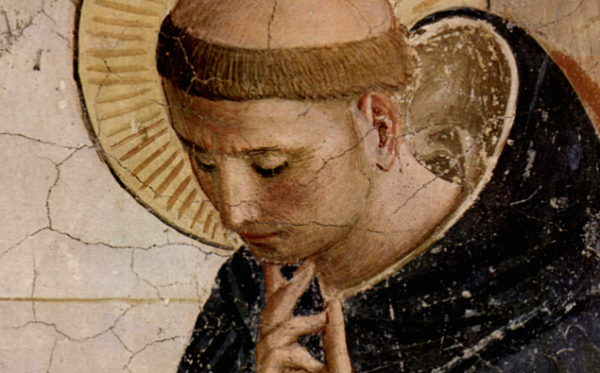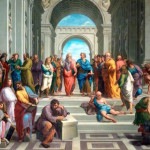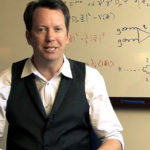In Defense of Classical Theism
by Steven Dillon
Filed under The Existence of God
When I first began to study the philosophy of religion, I became acquainted with a certain style of reasoning about God. This style seems to model arguments for and against God after arguments in the natural sciences, and is very much in vogue today. Herman Philipse is representative when he says that "the methodological dilemma for natural theologians in contemporary Western culture is that they either have to opt for methods of factual research that are intellectually respectable in the light of the present state of the sciences and scholarship, or for alternative methods, which are practised in religious investigations only, and which cannot be validated."1
This philosophical Zeitgeist has all but determined the discussions and debates about God for the last 50 years. This is why Richard Swinburne — with his edifice of probabilistic arguments for God — has gained the place of prominence he has. Even Alvin Plantinga, who is perhaps today's most influential philosopher of religion, says "In my opinion, Swinburne's arguments that Christian belief is probable with respect to public evidence are the best on offer."2
But, this ‘scientizing’ trend is a blip on the radar screen of historical theism, whose adherents have traditionally looked to considerations deeper than, and indeed presupposed by, science in order to determine the question of God's existence. Their contemporary successors don't appeal to Big Bang cosmology, to the fine-tuning or specified complexity of anything, in order to infer that God exists. Probability calculations are entirely inappropriate to their way of thinking. It does not much matter whether religious experiences are just effects of temporal lobe seizures, or even whether an all-powerful, all-good demiurge of the sort called 'God' by philosophers nowadays would prevent more evil than is in fact prevented: their cases for God aspire to rest on nothing less than metaphysical demonstrations.
Because of what the classical theist takes God to be, she contends that there is something so fundamentally absurd about God's non-existence that questions of probability calculations and scientific discoveries are superfluous or distracting at best, and circular at worst (as science can hardly explain the material it presupposes in order to explain things).
As Eastern Orthodox scholar David Bentley Hart puts it: "When I say that atheism is a kind of obliviousness to the obvious, I mean that if one understands what the actual philosophical definition of 'God' is in most of the great religious traditions, and if consequently one understands what is logically entailed in denying that there is any God so defined, then one cannot reject the reality of God tout court without embracing an ultimate absurdity."3
But if the classical and modern traditions so starkly diverge, what accounts for this? In a large way, the divergence arises from a disagreement on whether God participates in existence.
All of nature has being, and it is by virtue of having being that it exists (whether that being is substantial, material, or whatever). Folks working in the modern tradition discuss whether God has being, a topic about which there could obviously be rational disagreement given its assumptions. But, classical theists do not think that God has being, or that he could, even in principle. On classical theism, God is the most fundamental reality, and just is subsistent being itself. Thus, he does not instantiate properties, or participate in forms of being, as if there were anything independent of and prior to him: everything apart from God is subsequent to and dependent upon him. Everything else derives from the fount of being. Is there room to rationally think that derivative being ultimately doesn't derive from anything?
Instead of considering that question, I’d like to look at a way an atheist might respond to classical theism. She might agree that regardless of what shape derivative being takes — whether it extends infinitely into the past, or forms a causal loop in which A causes B, B causes C, and C causes A, etc. — derivative being is still derivative being, and thus there must be something from which it derives, namely a First Cause. But, she might caution, this First Cause needn't be God. Sure, it might be immutable, and even the source of all value4 and so forth, but we needn't say it has intellect or will.
Graham Oppy's recently published The Best Argument Against God represents something like this strategy: maybe we do need to posit an ultimate First Cause of sorts. But whether we do or not, there's nothing to be gained by saying it's a supernatural entity with intellect and will. No hitherto unexplained facts get explained, and no currently explained facts get explained any better. All we end up doing is making explanatorily superfluous claims. This is what LaPlace had in mind when he said, in reference to God, “I have no need of that hypothesis.”
This response would have considerable force against modern conceptions of God, under which God might be viewed as a sort of conjunction of essential properties: God is necessary and omnipotent and the source of all value, etc. Here one is entitled to reject the entire conjunction simply by virtue of rejecting one of its conjuncts. So while a non-theist might not think that anything has all of these properties, she might think that something has a couple or more of them.
But, this way of thinking is incoherent on classical theism, since the First Cause is considered to be utterly simple. In other words, the First Cause isn't thought of as having essential properties, or any sort of parts at all: the First Cause and its power, goodness, and even knowledge all refer to the same thing, just in different senses (much like "Clark Kent" and "Superman" do).
Classical theists advance a number of arguments for this simplicity. For example, “every composite is posterior to its components: since the simpler exists in itself before anything is added to it for the composition of a third. But nothing is prior to the first. Therefore, since God is the first principle, He is not composite.”5
Moreover, because composites would not have any power unless their parts coalesced, their power is of a dependent sort. But, the power of the First Cause would not be dependent on anything: that would completely destroy the ultimacy it's supposed to have in the first place. Thus, the First Cause is not, nor could it be, composed of any parts.
But, whether classical theists have good reasons for affirming Divine Simplicity or not, this way of responding to classical theism commits the fallacy of begging the question, since it assumes that the First Cause could be composite, which entails that Divine Simplicity (a central tenant of classical theism) is false.
Related Posts
Notes:
- Philipse, Herman. God in the Age of Science?: A Critique of Religious Reason. Oxford: Oxford UP, 2012. p. 85 ↩
- Plantinga, Alvin (2001). 'Rationality and Public Evidence: a Reply to Richard Swinburne'. Religious Studies 37: 219 ↩
- Hart, David Bentley. The Experience of God: Being, Consciousness, Bliss. New Haven and London: Yale UP, 2013. pp. 16-17 ↩
- Check out J.L. Schellenberg's Ultimism for a sophisticated version of this. ↩
- Thomas Aquinas in Scriptum super libros Sententiarum, 1.8.4.1 ↩
Note: Our goal is to cultivate serious and respectful dialogue. While it's OK to disagree—even encouraged!—any snarky, offensive, or off-topic comments will be deleted. Before commenting please read the Commenting Rules and Tips. If you're having trouble commenting, read the Commenting Instructions.













